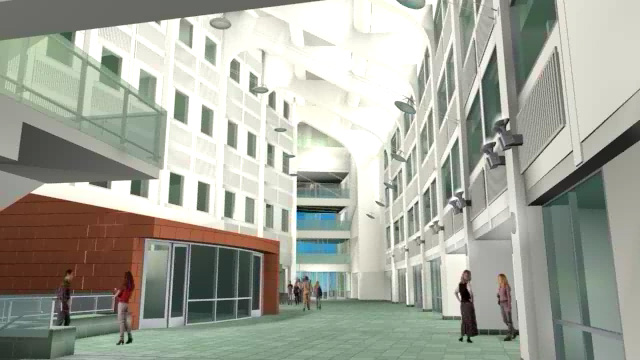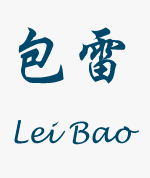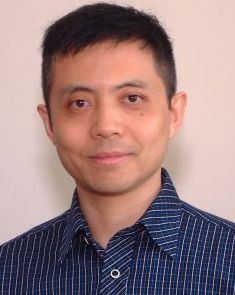|
|
包
雷教授(Dr.Lei Bao)履历
职
务及社会工作:
俄亥俄州立大学国际事务中心委员
美国国家物理教育协会国际委员会前任主任
IPERC国际教育研究中心主任
REAL教育研究与评估杂志主编
北京师范大学客座教授
北京交通大学客座教授
东南大学客座教授
华南师范大学客座教授
学
历职称:
美国俄亥俄州立大学物理系、教育学院教授,博士生导师
联系方式:bao.15@osu.edu
教
育经历:
1999年 获美国马里兰大学物理学博士学位
1992年 获中国东南大学电子工程硕士学位
1990 年获中国东南大学电子工程学士学位
工
作经历:
2011年—2013年:
美国俄亥俄州立大学物理系、教育学院教授
2007年—2011年:
美国俄亥俄州立大学物理系、教育学院副教授
2000年—2006年:
美国俄亥俄州立大学物理系助理教授
1999年—2000年:美国堪萨
斯州立大学博
士后
1994年—1999年:美国马里
兰大学物理系
助教
研
究方向:
- 学生科学推理能力发展评估
- 科学推理能力教材、培训课程的开发
- 大规模教育测量与评估:多维评估分析模型,学习动
态模型分析与
测量(应用项目反应理论,因素分析,模型分析等多种方法)
- 中美科学教育比较研究
- 计算机辅助科学教学过程的评估与材料开发
- 课堂互动探究课程的评估与开发
正
在进行的主要科研项目及项目资助:
- 评估师范生科学推理能力,
美国国家自然科学基金(NSF)支持,$199,801, 2010~2013
- 在科学课程中培养科学推理能力的理论与实践研究,
美国国家健康
研究基金(NIH)支持,$998,658, 2009~2013。
- 师范生科学推理能力的培养与评估,美国国家自然科
学基金支持,
$125,000, 2009~2012。
- 交叉学科科学教育数据平台,美国国家自然科学基金
支持,
$148,711, 2008~2011。
- 眼球追踪及虚拟现实技术在计算机辅助物理教学中的
应用,美国国
家自然科学基金支持,$100,396, 2007~2011。
- 大学物理课堂互动投票器的题库开发(单项选择概念
测试系列题
目),美国国家自然科学基金支持,$489,999,2006~2010,。
主
要论文成果:
重要文章摘录如下,
包括Science(美国科学杂志)论文:
- Koenig, K., Schen, M.,
Edwards, M. & Bao, L., “Addressing STEM Retention
through a Scientific Thought and Methods Course,” Journal Of
College Science Teaching, 41, no. 4, 23-29 (2012).
- Aaron Adair and Lei
Bao,
“Project-Based Learning: Theory, Impact, and Effective
Implementation,” Research in Education Assessment and
Learning, 3 (1), 6-21, (2012)
- Li Chen, Jing Han,
Jing
Wang, Yan Tu, and Lei Bao, “Comparisons of Item Response
Theory Algorithms on Force Concept Inventory,” Research in
Education Assessment and Learning, 2 (02), 26-34, (2011).
- Shaona Zhou, Jing Han,
Nathaniel Pelz, Xiaojun Wang, Liangyu Peng, Hua Xiao, Lei Bao, Inquiry
Style Interactive Virtual Experiments: A Case on Circular Motion,
European Journal of Physics, 32, 1597-1606, (2011).
- Lin Ding, Neville
Reay,
Albert Lee, and Lei Bao, Exploring the role of conceptual scaffolding
in solving synthesis problems, Phys. Rev. ST Physics Ed. Research 7,
020109 (2011).
- Albert Lee, Lin Ding,
N. W.
Reay, and Lei Bao, “Single-Concept Clicker Question
Sequences,” Physics Teacher,49 (6) p385-389, (2011) .
- Jing Wang and Lei Bao,
“Analyzing Force Concept Inventory with Item Response
Theory,” Am. J. Phys., 78 (10), 1064-1070 (2010).
- Lei Bao,* Tianfan Cai,
Kathy
Koenig, Kai Fang, Jing Han, Jing Wang, Qing Liu, Lin Ding, Lili Cui,
Ying Luo, Yufeng Wang, Lieming Li, Nianle Wu, “Learning and
Scientific Reasoning”, Science,
Vol. 323. no. 5914, pp. 586 – 587 (2009).
- Lei Bao, Kai Fang,
Tianfang
Cai, Jing Wang, Lijia Yang, Lili Cui, Jing Han, Lin Ding, and Ying Luo
“Learning of Content Knowledge and Development of Scientific
Reasoning Ability: A Cross Culture Comparison,” Am. J. Phys.,
77 (12), 1118-1123 (2009).
- Lin Ding, Neville W.
Reay,
Albert Lee and Lei Bao, “Are we asking the right questions?
Validating clicker question sequences through student
interviews,” Am. J. Phys., 77 (7), 643-650 (2009).
- L. Bao, S.
Stonebraker, and
H. Sadaghiani, “A Flexible Homework System,” Am. J.
Phys., 76 (9), 878-881 (2008).
- Lin Ding, Neville W.
Reay,
Albert Lee and Lei Bao, “The effects of testing conditions on
conceptual survey results,” Phys. Rev. ST Phys. Educ. Res. 4,
010112 (2008).
- David E. Pritchard,
Young-Jin Lee and Lei Bao, “Mathematical learning models that
depend on prior knowledge and instructional strategies,”
Phys. Rev. ST Phys. Educ. Res. 4, 010109 (2008)
- N.W. Reay, P. Li, and
L.
Bao, “Testing a New Voting Machine Methodology,”
Am. J. Phys. 76 (2) 171-178 (2008).
- L. Bao and E. F.
Redish,
“Model Analysis: Assessing the Dynamics of Student
Learning,” Phys. Rev. ST Phys. Educ. Res. 2, 010103 (2006).
- L. Bao,
“Theoretical Comparison of Average Normalized Gain
Calculations,” Am. J. Phys. 74 (10) 917-922 (2006).
- Gyoungho Lee, Jongho
Shin,
Jiyeon Park, Sangho Song, Yeonsoo Kim, Lei Bao, “An
Integrated Theoretical Structure of Mental Models in Science Education:
Students’ ideas of the circular motion,” J. Korea
Assoc Res. Sci. Edu. 25-6, 698-709 (2005).
- M. C. Wittmann, J. T.
Morgan, and L. Bao, “Addressing student models of energy loss
in quantum tunneling,” Eur. J. Phys. 26 939-950 (2005).
Chosen for “Highlights of 2005” by the journal.
- N. W. Reay, L. Bao, P.
Li,
R. Warnakulasooriya and G. Baugh, “Toward an effective use of
voting machines in physics lectures,” Am. J. Phys. 73, 554
(2005)
- L. Bao and E. F.
Redish,
“Understanding probabilistic interpretations of physical
systems: A pre-requisite to learning quantum physics”, Am. J.
Phys. 70 (3), 210-217, (2002)
- L. Bao, K. Hogg, and
D.
Zollman, “Model Analysis of Fine Structures of Student
Models: An Example with Newton's Third Law,” Am. J. Phys. 70
(7), 766-778 (2002).
- L. Bao and E. F.
Redish,
“Concentration Analysis: A Quantitative Assessment of Student
States,” PERS of Am. J. Phys. 69 (7), S45-53, (2001).
媒
体相关报道:
美国40于篇,中国20余篇
受
邀报告及论文:
受邀报告60余次;会议文章20余篇
详
细简历 |





